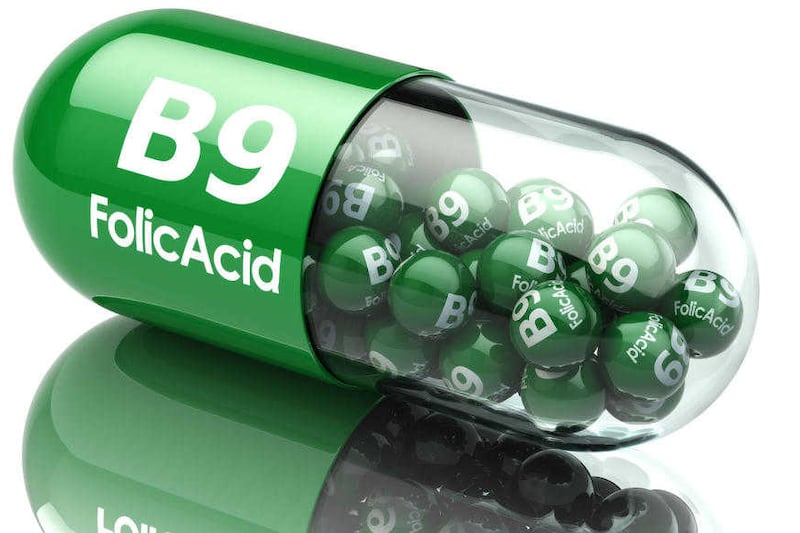MOST people are familiar with folic acid supplements, but usually only in association with pregnancy. Folate, or vitamin B9 – all the same thing – is in the spotlight for another reason now, however, thanks to a new study which found food fortified with folic acid helped to lower rates of congenital heart defects in Canada.
In 1998 Canada and the US were among 78 countries that made it compulsory for folic acid to be added to all types of flour, pasta and cornmeal to prevent neural tube defects in babies, such as spina bifida.
But now the study, published in the American Heart Association's journal Circulation, has found it can also lower the risk of certain heart defects babies are born with, such as holes in the wall between chambers, which usually require surgery.
In the UK the Department of Health recommends a daily supplement of 0.4mg (400 micrograms) of folic acid for women who are trying to conceive and for the first 12 weeks of pregnancy, to reduce the risk of neural tube defects – a condition where the brain or spinal cord of an embryo doesn't develop properly.
But is folic acid only good for pregnant mums and their unborn babies?
HEALTH BENEFITS
Shona Wilkinson, nutritionist at SuperfoodUK.com, says: "Most people have heard of folic acid and know that it's important to take when you are pregnant, but there are other reasons to take it too.
"We know that folate helps with good heart health. This is due to the fact it helps to metabolise homocysteine into methionine. Without enough folate, homocysteine levels increase. High homocysteine has been linked to many cardiovascular problems, including high cholesterol, atherosclerosis and stroke."
A 2008 study found those with low levels of folate were more at risk of Alzheimer's and dementia, too.
Researchers in Korea looked at the levels of folate, vitamin B12 and homocysteine in the blood of over-65s. Those with a folate deficiency were found to be almost three-and-a-half times more likely to develop dementia.
Wilkinson adds: "We also know that folate helps with sperm mobility: men with low folate levels have been found to have poor sperm mobility."
BOOST BLOOD CELLS
Folic acid works together with vitamin B12 to form healthy red blood cells, but a lack of either will cause abnormally big red blood cells to form, which can't function properly; a form of anaemia.
Symptoms include fatigue, lack of energy, breathlessness, feeling faint, headaches and pale skin, loss of appetite, heart palpitations and tinnitus.
In addition, symptoms caused by a folate deficiency can include a reduced sense of taste, diarrhoea, numbness and tingling in the feet and hands, muscle weakness and even depression.
Adults need 0.2mg of folic acid per day, which you should be able to get from natural sources of folate such as broccoli, Brussels sprouts, spinach, asparagus, peas, chickpeas and fortified breakfast cereals. As the body can't store it, you need it in your diet every day.
SIDE EFFECTS
Remember, if you're concerned you could have a deficiency, it's always best to discuss symptoms with your doctor. They may need to be investigated further, plus your doctor will be able to advise on steps you can take.
Wilkinson adds: "You should always discuss taking folic acid with your doctor if you are pregnant. Also check with your healthcare provider if you suffer from kidney problems or anaemia, as these can be contraindicated. High doses taken in supplement form can cause stomach upset, sleep disturbances and skin reactions, so always follow the dosage instructions."







